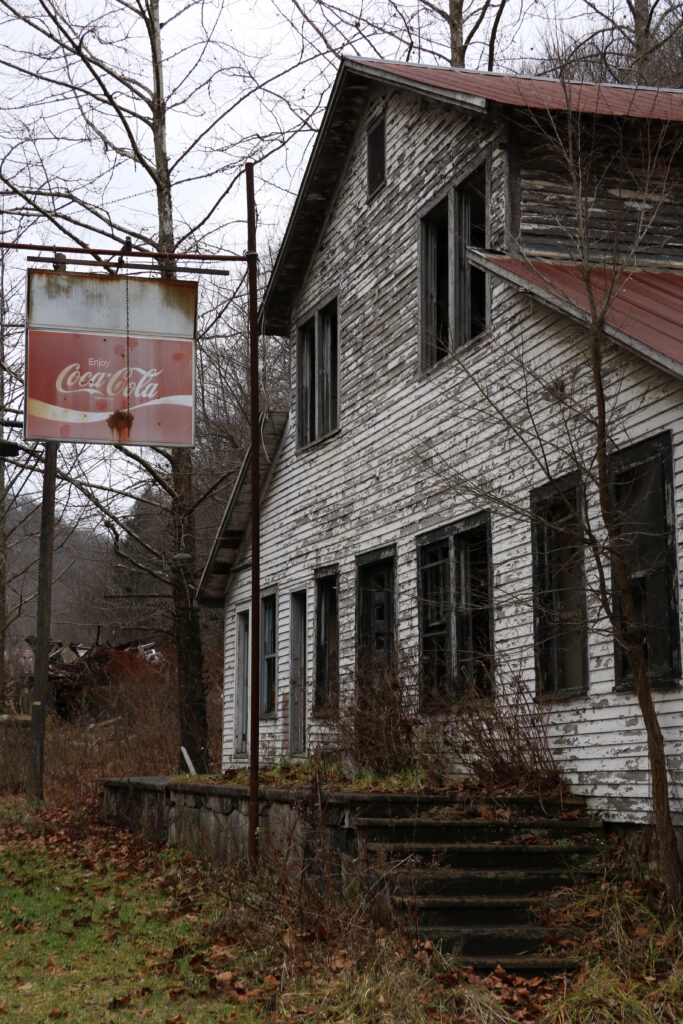It’s no secret that I’ve become a bit of a cynic. Read some of my previous posts, and you’ll see I have a lot to say about the failures of environmental organizations, academics, and, well…the whole socioeconomic system we live in. I’ve stated many times that it’s become hard for me to find hope. After all, my central Appalachian home is now a toxic, void-filled wasteland of coal slurry impoundments, acidic mine drainage, invasive species, increasing cancer rates, abject poverty, and all the societal ills that coincide with a hopeless economic situation—including an opioid epidemic. What is left of our hollowed-out region makes me want to hang my head and cry.
Even at the best of times, when the union was strong and miners received decent wages and benefits, we were still working in coal mines. We were breathing dust and continuously risking life and limb for a job to afford a basic life. And as bad as we’ve had it, I know that we haven’t it had nearly as bad as others in this world.
Our suffering pales in comparison to the legacy of injustices against BIPOC (Black Indigenous People of Color) communities in this country and abroad. Every case of inequality and injustice traces back to wealth inequality and the selfish greed driving it. Some people have told me, “Well, that’s just the way it’s always been.” I’m afraid I have to disagree. These are the people who have wholly subscribed to the dominant materialistic culture. These are the people who have chosen to willfully ignore thousands of cultures and religious doctrines that all admonish selfishness and greed so they may be apathetic toward addressing their own selfishness and materialism.
I often find myself considering the philosophy of Jean Jacques Rousseau. When we allow people to own land and natural resources, and we allow single individuals (or corporations) to own more of it than others, this is where we find the Origins of Inequality Among Men. It is an inequality that ultimately leads to classism, the division and alienation of labor, the natural resource curse, racism, poverty, and of course—ecocide. Things weren’t always like this, especially before agrarianism.
So when the questions comes around, “Can we change? Will we change?” I sadly have serious doubts. We’ve been on this path of raping the Earth for profits and exploiting each other for far too long. We have grown so used to it, so accustomed to it. Our everyday lives, culture, commutes, interactions, work-life balance are all entirely dependent upon exploitation.
Though somewhat cliche, to solve our problems we must have a complete and total re-envisioning of what it means to live and be human. We need to view the Earth,1 our existence, and our daily relationship to the natural world much in the same way indigenous peoples did and still try to do. Our entire society and culture need to change back to this way of thinking. I dare not romanticize it, but take a moment to read this excerpt from Land of the Spotted Eagle written by Luther Standing Bear:
“…Many times the Indian is embarrassed and baffled by the white man’s allusions to nature in such terms as crude, primitive, wild, rude, untamed, and savage. For the Lakota, mountains, lakes, rivers, springs, valleys, and woods were all finished beauty; winds, rain, snow, sunshine, day, night, and change of seasons brought interest; birds, insects, and animals filled the world with knowledge that defied the discernment of man.
But nothing the Great Mystery placed in the land of the Indian pleased the white man, and nothing escaped his transforming hand. Wherever forests have not been mowed down; wherever the animal is recessed in their quiet protection; wherever the earth is not bereft of four-footed life — that to him is an ‘unbroken wilderness.’ But since for the Lakota there was no wilderness; since nature was not dangerous but hospitable; not forbidding but friendly, Lakota philosophy was healthy — free from fear and dogmatism. And here I find the great distinction between the faith of the Indian and the white man. Indian faith sought the harmony of man with his surroundings; the other sought the dominance of surroundings. In sharing, in loving all and everything, one people naturally found a measure of the thing they sought; while, in fearing, the other found need of conquest. For one man the world was full of beauty; for the other it was a place of sin and ugliness to be endured until he went to another world, there to become a creature of wings, half-man and half-bird. Forever one man directed his Mystery to change the world He had made; forever this man pleaded with Him to chastise His wicked ones; and forever he implored his Wakan Tanka to send His light to earth. Small wonder this man could not understand the other.
But the old Lakota was wise. He knew that man’s heart, away from nature, becomes hard; he knew that lack of respect for growing, living things soon led to lack of respect for humans too. So he kept his youth close to its softening influence.”
Luther Standing Bear – Land of the Spotted Eagle 1933
I often think about how far detached we’ve become from the natural world, especially in urban and suburban areas. I think about how much we have changed the landscape and impacted the natural systems on this continent in just 400 years.
Even among the many millions who fear climate change and want to do something about it, they aren’t doing enough. Just living in a city is a major contributor to environmental degradation elsewhere. Modern cities could not exist without fossil fuels, the exploitation of natural resources, and the plethora of externalized costs to humans and global biodiversity. They are trying to find every means possible of saving the planet while maintaining materialistic lifestyles in an economic system that is not—nor ever could be—compatible with the natural world. No number of electric vehicles, solar panels, wind turbines, or recycling facilities will get us out of this mess.
As unpopular of an idea as it is, it will take eliminating many of the wasteful, unnecessary comforts, conveniences, and altogether cushy lifestyles afforded to us by fossil fuel energy and materialistic lifestyles. It will also take sharing physical labor and the workload of food production. We must sustainably cultivate our food at a local level thereby making each community resilient and food secure. No one goes hungry. No one ever has the fear of going hungry. Best yet, research has proven over and over again that there are serious health, and even mental health, benefits to growing and consuming organically produced food.
The information is out there. Wendell Berry, Vandana Shiva, Barbara Kingsolver, and Peter Bane are some amazing authors and thinkers when it comes to food production and consumption.2 The SolarPunk movement seeks to join modern technological innovations with natural ecosystems to avoid a cyberpunk dystopian future.
Right now, technological innovation is pushed toward materialistic lifestyles and the economies and wealth inequalities that drive it. We need to put all technological innovation toward repairing our natural ecosystems and lessening the worst impacts of climate change and biodiversity collapse. We must also integrate nature into our everyday understanding of life and existence. We serioulsy could develop an enjoyable, sustainable existence that transitions us away from fossil fuels.
So what’s left is the hardest work of all—convincing everyone that we are all humans living on a pale blue dot, that money and status are a myth, that materialism is harmful, and that we should all start growing gardens to enjoy sustainably raised food so we can all just hang out and enjoy our beautiful existence on an amazing planet. And maybe if we shut off all of these goddamn lights, we might be able to see the stars again too.
We need to convince people to build ecologically designed homes and eliminate the need for fossil fuel energy to heat and cool our living spaces. We need to live and work more locally, we need to rebuild rail infrastructure including commuter rail and high speed train systems so we can eliminate car culture. And we need to find value in physical labor as much as academic degrees and desk jobs. Believe it or not, there is a wonderful world that exists outside of cubicles and high rise offices.
For a little while, I really felt there was hope. I subscribed to Chris Hedges’ narrative at the end of the documentary Blood on the Mountain, that despite the incredible, fossil fuel-based economic forces telling us otherwise, resistance is still possible. For a little while, it did feel possible to save our mountains and help transition the world away from it’s current consumptive death spiral.
But, like many grassroots activists, my thoughts and words were only important so long as they conformed to privileged narratives within the non-profit industrial complex and corporate media. As this short film about a dear friend shows, once grassroots organizers begin addressing those problematic narratives, they are cast aside and the world moves on.
So what is next for the “thoughtful coal miner?” I’m not entirely sure. For now I’m just doing the best I can for my family and whatever community we find. Who knows where the winds of change will take us next.

